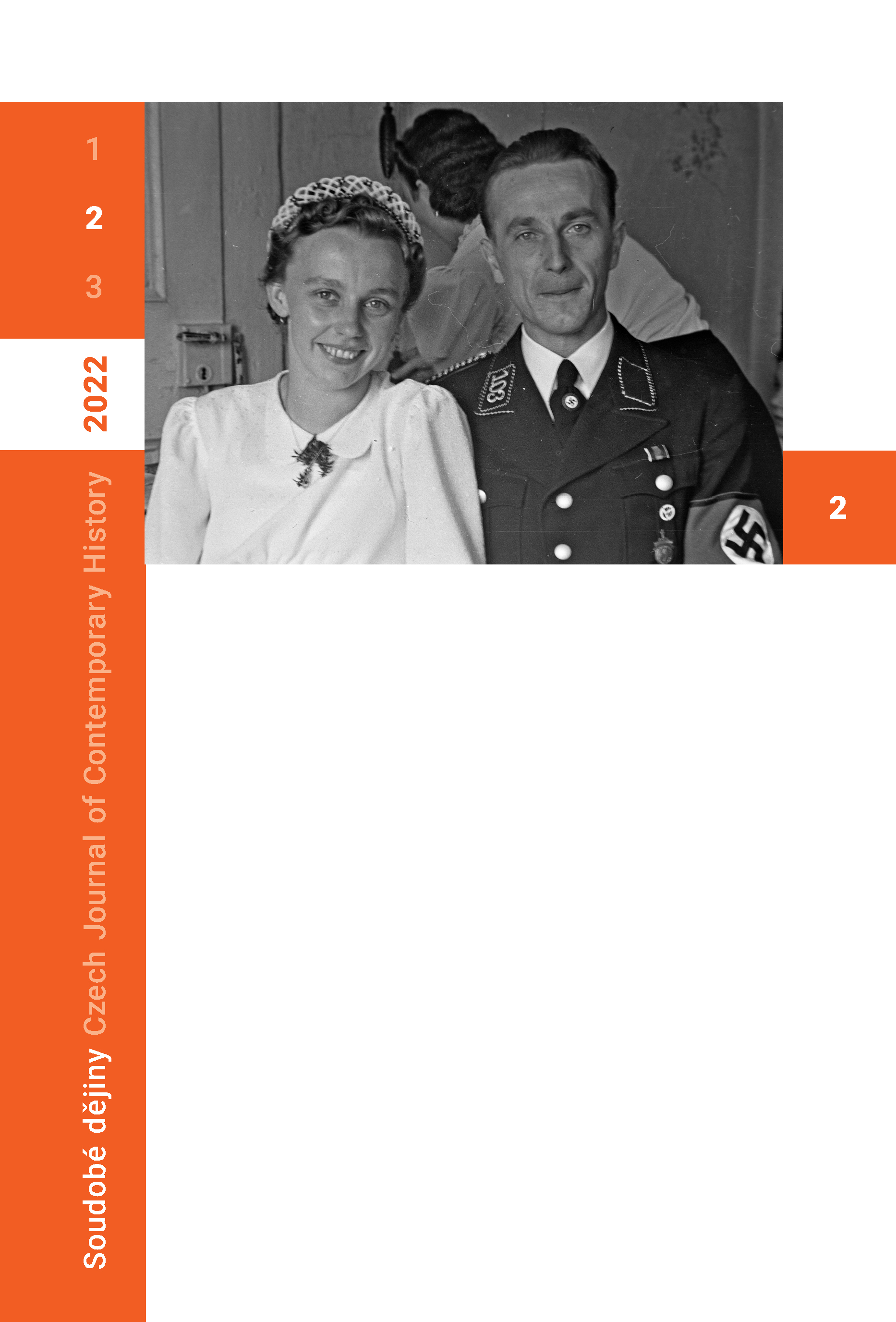Českoslovenští slavisté v osidlech geopolitiky
Czechoslovak Slavists Trapped in Geopolitics
The Slovak and Subcarpathian Ruthenia Research Committee at the Slavic Institute and Dilemmas of International Cooperation in Research on Carpathian Culture Between the Wars
Author(s): Milan DucháčekSubject(s): History, Anthropology, Cultural history, Ethnohistory, Local History / Microhistory, Political history, Interwar Period (1920 - 1939)
Published by: AV ČR - Akademie věd České republiky - Ústav pro soudobé dějiny
Keywords: Czechoslovakia;First Czechoslovak Republic;Slavic studies;politicization of scholarship;Czechoslovak-Soviet relations;geopolitics;Committee for the Research of Slovakia and Subcarpathian Ruthenia
Summary/Abstract: The article deals with the politicization of science and the changing relationship between the interwar Czechoslovak Republic and the Soviet Union, in relation to the Soviet influence on Czechoslovak Slavic studies and with an emphasis on research in dialectology, literature and, especially, the vernacular culture of the Carpathian Arc region. It therefore also deals with Czechoslovak scholars’ attitude towards the question of Ukrainian cultural and literary individuality within the Russian/Soviet and Czechoslovak territorial context during the 1920s and 1930s. These tensions manifested themselves, among other things, in the editorial policy of the Committee for the Research on Slovakia and Subcarpathian Ruthenia (Sbor pro výzkum Slovenska a Podkarpatské Rusi), a separate section within the Slavic Institute (Slovanský ústav) established in Prague in 1928. The Committee focused on research into the “eastern” regions of interwar Czechoslovakia and provided financial support for research in the border regions of Slovakia and especially in Subcarpathian Ruthenia. The support included grants for leading Czechoslovak scholars of Ukrainian or Carpathian origin, chief among whom were the dialectologist Ivan Pankevych and the architect Volodymyr Sichynskyi. The policy of the Committee also included collaboration with Russian scholars (including leading Russian and Soviet researchers, such as the ethnologist Petr Grigorievich Bogatyrev), and especially the Russian and Ukrainian anti-Bolshevik intellectual elite, who were forced to emigrate (including Oleksander Kolessa and Volodymyr Kubiyovych). The article draws on leading Slavic journals (such as Slovanský přehled and Ročenka Slovanského ústavu), as well as primary archival research. In the context of the changing geopolitical situation, the author traces the gradual shift in the attitudes of Czechoslovak Slavists on the question of Ukrainian cultural individuality, the cancelling or latent censorship of cooperation with individual scholars as well as the changes in scholarly terminology within the editorial policy, which during the 1930s became increasingly subjected to the pressure of political conformity.
Journal: Soudobé Dějiny
- Issue Year: XXIX/2022
- Issue No: 2
- Page Range: 471-512
- Page Count: 42
- Language: Czech

